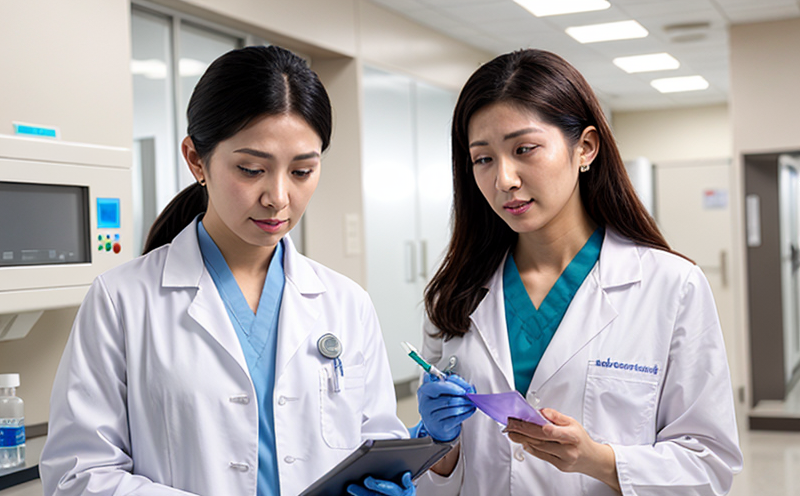USP Residual Detergent Testing in Biopharmaceuticals
In today’s competitive pharmaceutical landscape, ensuring product quality and safety is paramount. USP residual detergent testing plays a critical role in maintaining the integrity of biopharmaceutical products during development and manufacturing.
Residual detergents are cleaning agents that can inadvertently remain on the surfaces or within the components of biopharmaceutical containers and equipment, potentially affecting product quality. The United States Pharmacopeia (USP) sets stringent standards to ensure that these residues do not compromise the efficacy or safety of pharmaceutical products.
Our laboratory specializes in USP residual detergent testing for a wide range of biopharmaceuticals including vaccines, monoclonal antibodies, and recombinant proteins. This service is crucial during product development, quality assurance, and compliance with regulatory requirements such as those set forth by the FDA and EMA.
The process involves several key steps: sample collection, extraction, analysis using validated methods like HPLC or ion chromatography, followed by thorough data interpretation to ensure compliance with USP guidelines. This service ensures that biopharmaceuticals meet strict requirements for safety and purity, which is critical for patient well-being.
Our team of experts uses state-of-the-art equipment and follows rigorous protocols to deliver accurate results. We employ a multidisciplinary approach involving microbiologists, chemists, and analytical scientists to ensure comprehensive testing. Our clients can trust us to provide reliable data that supports their regulatory submissions and quality assurance programs.
Understanding the impact of residual detergents on biopharmaceuticals is crucial for manufacturers looking to enhance product safety and efficacy. By adhering to USP standards, we help our clients achieve compliance with international regulations while also ensuring that their products meet stringent internal quality control standards.
Applied Standards
| Standard | Description |
|---|---|
| USP NF 1498 | This standard outlines the requirements for testing residual detergents on biopharmaceuticals. |
| ISO 15670 | International Standard that provides guidelines for cleaning validation in pharmaceutical manufacturing. |
| ASTM E2398-18 | American Society for Testing and Materials standard for the measurement of residual solvents in pharmaceuticals. |
| EN 14760 | An international standard that specifies requirements for cleaning validation in the pharmaceutical industry. |
Benefits
- Comprehensive testing to ensure product quality and safety.
- Supports regulatory compliance with FDA, EMA, and other international bodies.
- Avoids potential contamination issues that could affect the efficacy of biopharmaceutical products.
- Provides reliable data for internal quality control programs.
- Reduces the risk of product recalls or withdrawals due to non-compliance with USP standards.
Quality and Reliability Assurance
We take a proactive approach to ensure that every test performed meets the highest quality standards. Our laboratory adheres strictly to USP guidelines, ensuring that all tests are conducted accurately and consistently.
Our team of experts ensures that each sample is handled with care from collection through final analysis. We use only the most advanced equipment and reagents to provide precise results. Our protocols are designed to minimize any potential sources of error, thereby enhancing reliability and consistency in our testing process.
We have a robust quality assurance program that includes regular calibration of instruments, validation of methods, and ongoing training for our staff. This ensures that we can consistently deliver accurate and reliable test results. Our clients can rest assured knowing that they are working with a trusted partner committed to excellence in biopharmaceutical testing.
Our commitment to quality is further demonstrated through our participation in proficiency testing programs, which provide independent verification of our analytical capabilities. By maintaining high standards of quality and reliability, we help our clients meet their regulatory obligations while also enhancing the safety and efficacy of their products.





